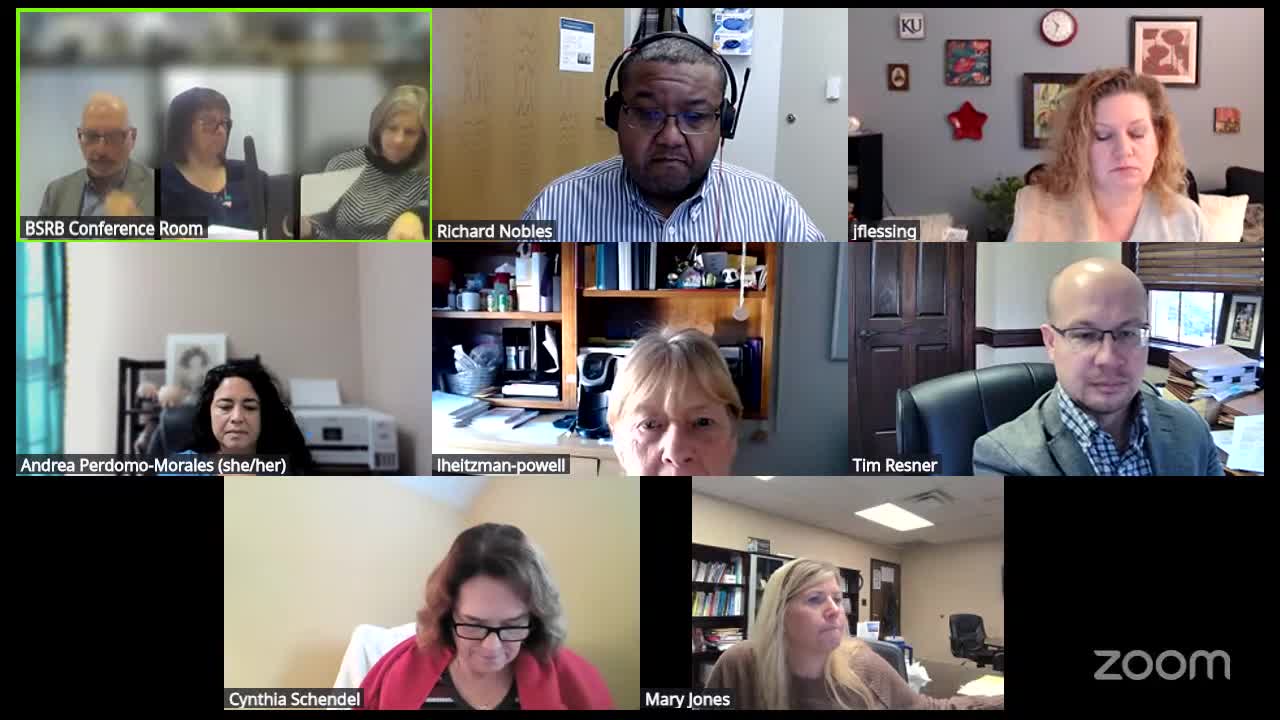Kansas BSRB reports progress on multistate compacts, licensee survey and workforce trends
Get AI-powered insights, summaries, and transcripts
Subscribe
Summary
Board staff reported on multistate compact implementation (PSYPACT, professional counseling compact, social work compact), a licensee survey with roughly 4,000 respondents, and modest license growth; members discussed supervision, AI regulation, and training takeaways from national conferences.
At its Nov. 10 meeting the Kansas Behavioral Sciences Regulatory Board heard a multipart update on multistate compacts and on a broad licensee survey the agency expects to finalize by year end.
Executive Director David Fye said the board is a member of three compacts and described differences across models: PSYPACT (psychology compact) focuses primarily on telehealth and limits some master's-level psychologists; the professional counseling compact uses a privilege model with no grace period for background checks; and the social work compact will have states issuing multistate licenses and reporting to a compact commission. Fye said Kansas passed social-work compact enabling legislation and is working through vendor selection for compact data systems; he estimated the social-work compact could be roughly nine months from operation once vendor work proceeds.
Richard Nobles, the board's commissioner for PSYPACT, said he will attend the national PSYPACT meeting and will chair a committee to align bylaws, rules and statutory language. Laura Shaughnessy and other members discussed the counseling compact's requirement that practitioners have fingerprint-based background checks as a condition for compact privileges and noted Kansas has two counselor license levels that complicate implementation. The board expressed support for setting the counseling privilege fee at a low level (a $25 privilege fee was discussed) to encourage uptake, citing Minnesota and Arizona as contrasting examples.
Fye also highlighted the licensee survey: about 4,000 licensees responded and staff are working toward a final profession-specific and comparative report by the end of the calendar year. He noted findings that some professions have lower rural practice rates (licensed psychology ~13–14% practicing in rural areas vs. some other professions near 35%) and that a sizable share of clinicians report practicing in more than one state, supporting compact interest.
On complaints, staff reported 77 complaints received so far this year compared with 254 last fiscal year; staff and board members discussed possible causes including complaints involving unlicensed providers, workplace/supervision disputes, and the general growth in licensee totals.
Members returned from national conferences (ASPPB, ASWB, NAADAC, CLEAR) with takeaways about supervision, testing and AI regulation. At ASPPB the proposed additional psychologist licensure test was withdrawn; a task force will consider merging elements of the tests and expects continued town halls through 2026.
Board members asked staff to continue monitoring complaint volumes as compacts and new privilege models are implemented, and to finalize the survey reports for January.
